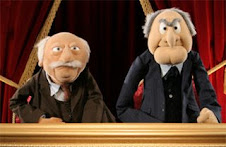It's interesting that we can hardly find products to buy in this country that are made here, but the tear gas canisters found on the street in Cairo say "Made in USA." No wonder much of the world distrusts us, at best.
Widely reported, see here.
Curmudgeonly observations mostly muttered under my breath
As the banks that are involved in the transaction are unable to recoup their costs for operating this service and allowing merchants to accept debit cards, we're worried that those costs will be shifted down to the consumers.
He says some debit cards may soon charge annual fees. Others may charge a fee for each debit card transaction.
"When you look at unbalanced people, how they respond to the vitriol that comes out of certain mouths about tearing down the government. The anger, the hatred, the bigotry that goes on in this country is getting to be outrageous," said the sheriff. "And unfortunately, Arizona I think has become sort of the capital. We have become the mecca for prejudice and bigotry... All I can tell you is that there's reason to believe is that this individual may have a mental issue. And I think that people who are unbalanced are especially susceptible to vitriol."Well said, Sheriff, well said.
The filibuster is why health care reform didn't contain a public health care option similar to Medicare; it's why no meaningful climate legislation was passed; why even non-controversial judges were denied confirmation despite a crisis in the judiciary; and why even the bipartisan DREAM Act wasn't even brought to the floor.
1. Making those who filibuster actually stay on the floor and talk, like Jimmy Stewart in the famous scene of Mr. Smith Goes to Washington.
2. Reducing the opportunities to filibuster
3. Expediting the nominations process for relatively uncontroversial nominees
4. Eliminating secret holds


